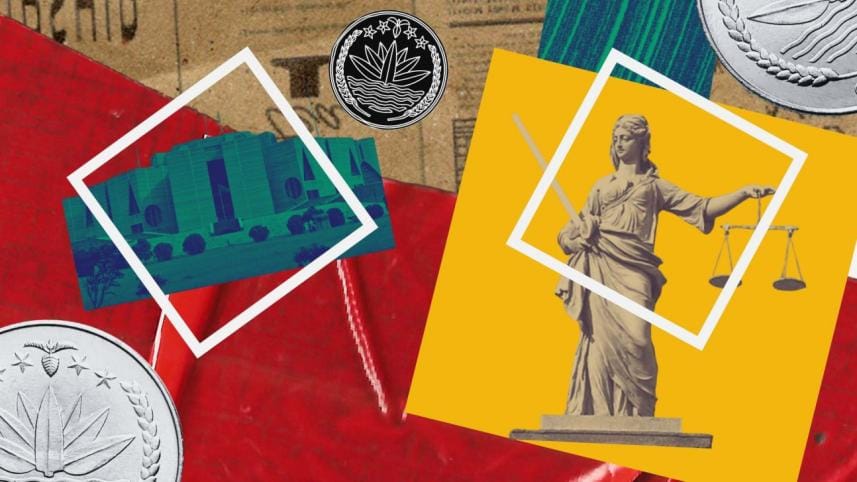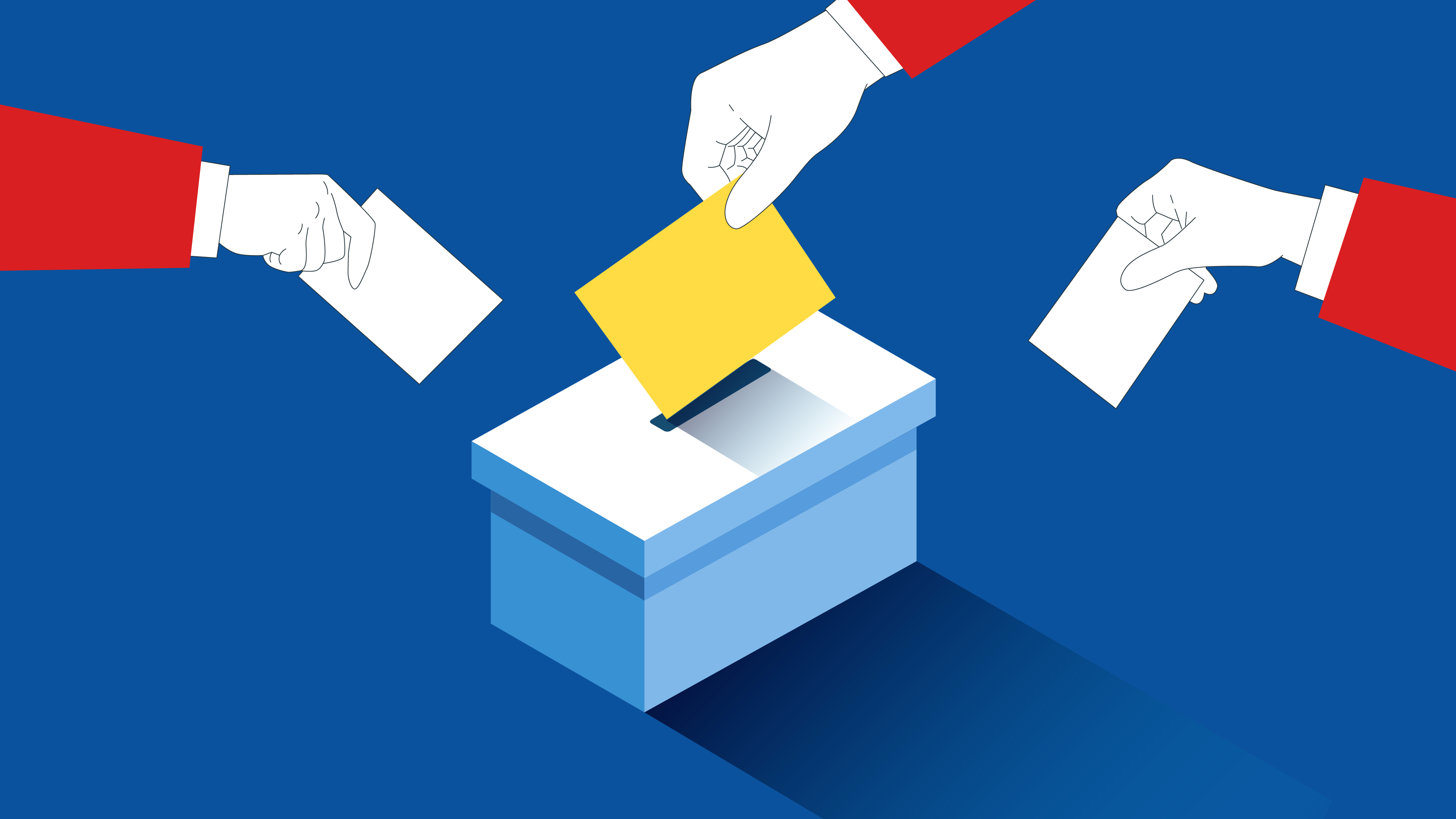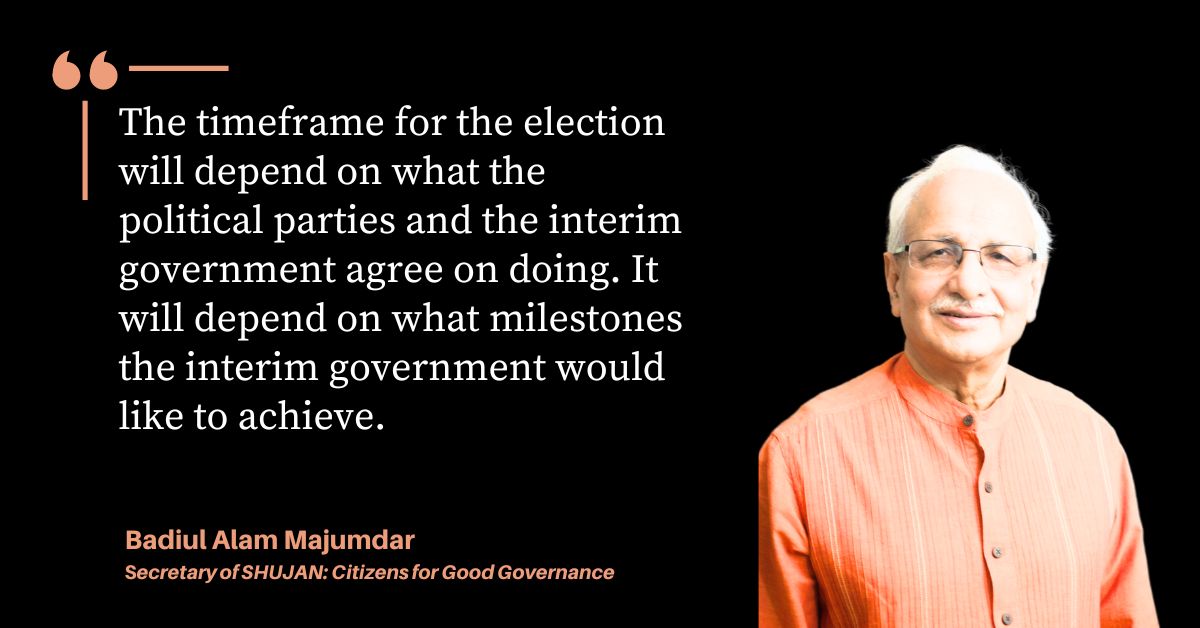How election can be a tool of accountability

The purpose of a "free" and "fair" election is to ensure accountability of those participating in it. In the past, parties in Bangladesh won elections with around one-third of the votes cast, while a third of the constituencies were won with around 30 percent of the votes cast. The problem lies in putting the emphasis on the election, not its purpose. Hence, the electoral system must be reformed carefully.
Among the three commonly used methods of determining the outcomes of legislative elections—plurality, majority, and proportional representation—the third one seems to be most effective. A study of elections in Muslim-majority countries reveal that the re-democratisation in Indonesia has been peaceful and uninterrupted since 1997 because of the proportional representation system in its parliament; the parties must cooperate to get any bill passed, becoming a "check" on one another.
In a proportional representation voting system, votes are cast for the parties, either in an open or a closed list system. The voters can give preference to a particular candidate in the former system, but not in the latter. An individual or a party must get a minimum threshold of votes to enter the legislature (e.g. one percent for individuals, two to seven percent for a single party, 5-10 percent for a coalition of two registered parties, 15 percent for a coalition of three parties and above, etc).
Proportional representation has many benefits. With seats in the chamber and in the committees proportional to the votes, as evident in other countries, each party must cooperate for the future. Most importantly, because of the list system, especially when closed, only the best from all parties are likely to be elected. Furthermore, the best female candidates listed by all parties will have an equal chance to win (because the campaigns would be collective, not personal).
This system may also create women's equal access to the parliament. The laws in other countries require listing of women in the party list (even at the top at a defined percentage). Women's winning chances are doubly protected in a closed list system.
It may also prevent "one-person" parties from claiming to be "people's" parties or issuing threats against every government policy. In 2001, 77 percent of the total candidates got their deposit money forfeited for not getting the minimum 12.5 percent of votes. In fact, 27 political parties received fewer than 1,000 votes each. The minimum threshold requirement to enter the parliament in the proportional system would force the parties to join hands to prepare the list prioritising the candidates most likely to secure the maximum number of votes. It may also prevent over-representation and the loss of the voice of the unheard. It would also infuse voter enthusiasm because every vote would count, reducing the risk of polarisation or marginalisation and increasing cooperation, respect and a sense of national responsibility. It is also likely to curb the vote-rigging tendency because a few polling stations will not influence the outcome of one candidate.
A simple calculation shows that with the total numbers of votes polled, in a proportional system, the Awami League and BNP would have won 143 and 146 parliamentary seats (including the reserve seats) in 2001, and 182 and 123 seats (including the reserve seats) in 2008, respectively.
However, a reformed electoral system may bring the desired political effects only with an accountable, independent, and honest Election Commission that is adequately funded and staffed to regulate the political parties and election candidacy. A survey of dozens of constitutions shows that many countries, because of having political will and experience, have provisions that the constitution of a political party must have a time limit for executive positions (including the party presidency), and restrictions on directly inheriting party presidency (or senior executive positions). Moreover, a political party or group should not be able to participate in an election if it has been disrespectful to the country and its constitution, or has to leave the government under political compulsion (before completing its tenure in office).
Eligibility of election candidacy includes, among others, loyalty to and residency in the country, high moral standing, financial credibility, distance from criminal activity, and so on. Disqualification for election candidacy includes, among others, involvement in financial crime or in acts and ideas against the interest of the country, among others.
The reformed electoral system should focus on making the election beneficial to the voters, not the party, and the election candidacy laws should promote inclusion of the best persons in every party candidate list. Rule of law begins with laws, not arbitrary rules, and would save the government from making arbitrary decisions regarding the elections.
Dr Samiul Hasan is an academic with interests in human security issues in Muslim-majority countries.
Views expressed in this article are the author's own. He has not taken money for this work or for any previous work from any private agency.
Follow The Daily Star Opinion on Facebook for the latest opinions, commentaries and analyses by experts and professionals. To contribute your article or letter to The Daily Star Opinion, see our guidelines for submission.




 For all latest news, follow The Daily Star's Google News channel.
For all latest news, follow The Daily Star's Google News channel. 

Comments